Compared to other smartphones of Sony, the
similar 720p display is now increased to 4.6inch, a different 13MP camera, a
new 1.5Ghz Snapdragon S4 processor and Android ICS – with a promise that it is possible
to upgrade to Jelly Bean soon once it arrives the stores. Xperia T also brings
the familiar hardware curve back to life again and chooses the onscreen Android
buttons for its design. Could such changes in design and a promise of the most
updated OS bring Sony’s smartphone to the fair competition with other
heavyweight opponents? Just read this review for more details.
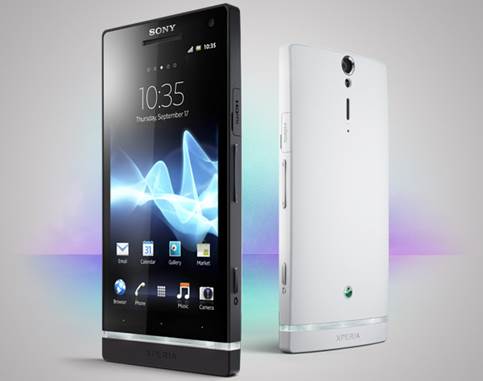
Sony
Xperia T
Hardware
When it was first introduced to us, the
Xperia T is in its way to transform into a beauty, but when we took it out of
the box, we found it a little bit… under-expected. It is 139g heavy and makes
us feel somehow chunky when holding it in-hand. The screen is connected to the
glossy plastic frame, while the back side and most of the sides have a matte
look. Yes, Sony keeps getting rid of the glossy look, and our fingerprint
cannot feel happier. As the curves are inspired by the Xperia Arc, you can
expect from a device with a 4.6inch display to hold it easier. The fact that
the screen is bended inwards makes it easier to grasp than the smaller Xperia
S. While months have passed since the latest luxury smartphone of this company
was launched, the button positions and access panels have been changed, solving
some critics that we might have towards some Sony’s phones so far.
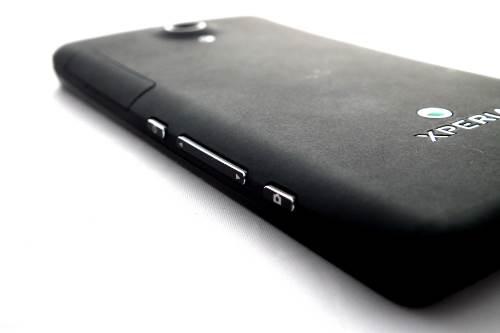
Xperia
T’s look from a side
First of all, the fragile ports cover has
disappeared, with the support of HDMI which is now assigned to MHL within the
micro-USB socket- which is open to the elements. We cannot get the idea why
Sony chooses to cover a port which is used daily, even on the Xperia S. The
buttons are also moved – all of which are now located on the right edge. Under
the only flat cover for the micro-SIM and microSD cards, you have a power button,
volume rocket and the two-stage camera button – all are built solidly. It is
required to have a gentle push in order to focus when using the camera button,
while a hard press will start the camera application from the standby mode. There
is no removable cover, which gives us a solid feeling holding the device,
although it is lack of other premium materials that might be found in other
high-priced competitors.
At the back side, there is 13MP camera,
while the front sensor can take photos in 1.3MP and record video in 720p
quality. With the Exmor R Sensor from Sony, the main camera is capable of
filming 1080p videos and is accompanied by a LED flash light and the mono
speakers locate on a very convenient place where you can grasp the phone. On
the other hand, the speakers produce quite loud sound, with some distortion
when the volume is max. The NFC certificate of Xperia T means that it can
resign the audio responsibilities to the newest launched speaker range of Sony.
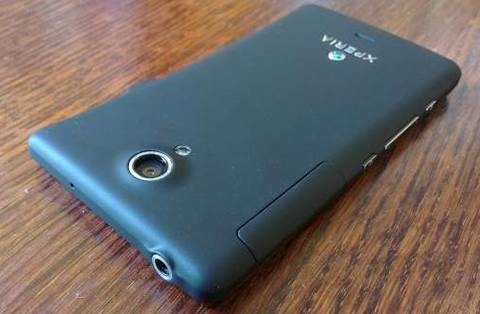
Xperia
T’s 13MP camera
Display
If you are fond of what Sony provides on
the Xperia S and Ion, you will easily recognize that the Xperia T just performs
that well – but more. The screen is 4.6inch large and covered by a
scratch-resistant glass. Sony designs it to be fitted in the Sony’s Entertainment
hub and all the content it has on offer – if you do not mind committing to
another ecosystem. There is another good performance from the screen – no
AMOLED is equivalent to less color distortion and no PenTile problems. The view
angle is almost the same as that of the Xperia S, which means that it’s quite
good. We also would like to mention that these onscreen keys give Xperia T a
more up-to-date look than its predecessor – Sony is on the way to catch up.
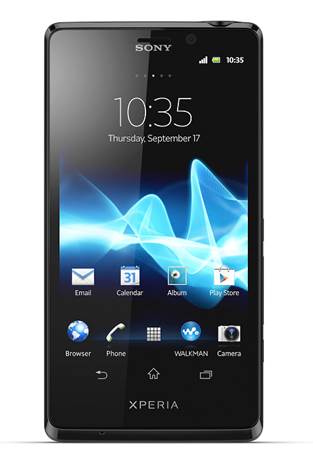
Xperia
T’s display
Software
The Xperia T is accompanied by a
manufacturer-tinged version of Android 4.0 – Ice Cream Sandwich. This time, replacing
the capacitive keys is the onscreen buttons, but at the first glance, the UI
looks very similar to the Xperia S. As the result, a big collection of widget
Xperia might be possible, with many attentions towards the homegrown software
and services of Sony. An extension from a social feed to Music Unlimited makes
us change these homes immediately by eliminating most of them.
Sony do not really plan to go against
Google’s content store, but such things like Spotify and Amazon are not a
strong enough force to attract us to go for another ecosystem which is about to
withdraw money from our pocket. There are also many other apps that come with
the app drawer, but it is better untouched. Such games like Dead Space and Need
for Speed are introduced by an EA center, but after tapping through, there will
be an announcement informing you that none of the listed games are supported on
the Xperia T (at least up to now). PlayNow hub does provide the compatible
games, but you will soon come back to Google’s game collection which is richer
and has higher quality.
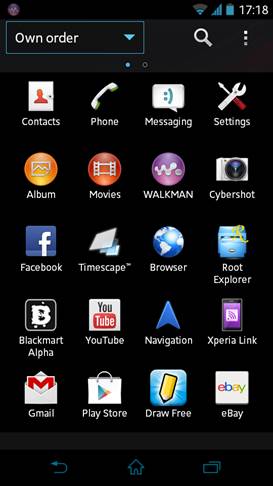
Xperia
T’s applications
The multitasking button on the screen is
not only for shortcuts to the currently running applications but also that to
calculators, timers and a memo-taking function. It is called “small apps” by
Sony and there exists a shortcut for additional installation in the Google Play
– although there is still nothing to download from there at this time.
For those who are always surrounded by
Bravia TVs and Sony Blu-ray players, Media Controller might become a
well-coming addition which helps transferring the remote functions to your smartphone,
although there is no compatible TV available in our office for us to check
that. The Movie Studio app is packed on Xperia T, providing some tools to split
these home movies, while the Smart Connection brings a light performance of
Motorola’s Smart Actions to the users – we started to use the night mode right
away. Unlike Smart Actions, they are somehow limited by what you are able to
link with your phone; the silent mode will be turned on and an alarm clock will
be set whenever the device is charging and it is sometimes between 10pm and
7am, all of which are done automatically by “night”. These timings can
absolutely be changed and you are free to set other apps that would be launched
when the phone is connected headsets, chargers and other compatible hardware. But
compared the Motorola’s attempt, it is still somehow limited.